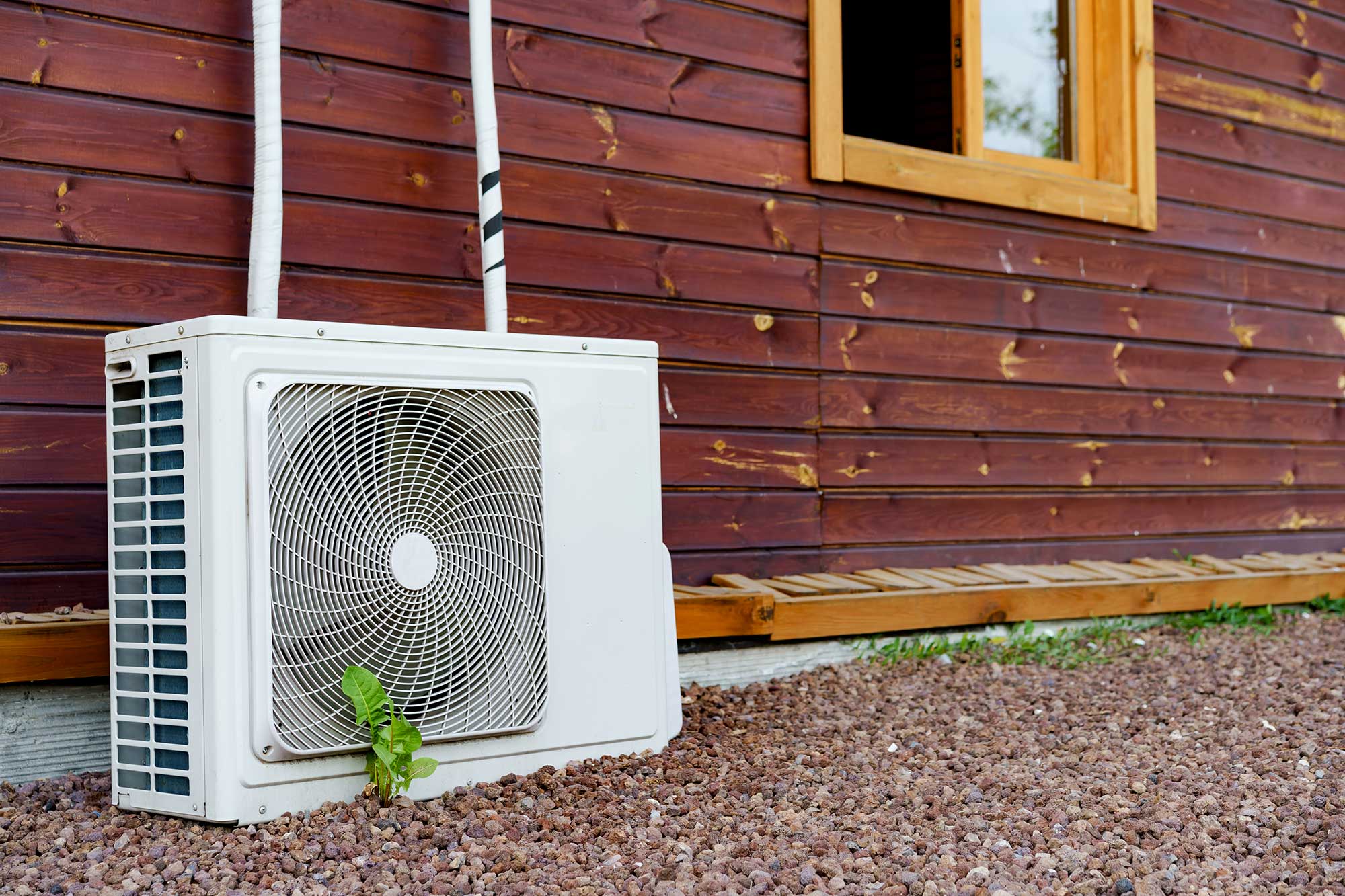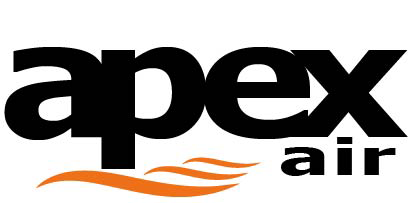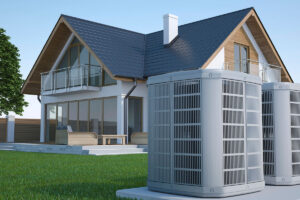
Heat pumps have long been celebrated by their users as an effective and energy-efficient alternative to traditional HVAC systems. Heat pumps are capable of keeping a home comfortable in both summer and winter temperature extremes. However, they work most efficiently and save more energy in mild climates.
Why are heat pumps most effective in mild weather? The answer is simple: They don’t have to work as hard to maintain comfortable temperatures inside the home, thus using less energy.
Here’s a short primer that will cover the advantages of heat pumps in milder climes.
How Do Heat Pumps Work?
Heat pumps can function as both a heating and cooling system incorporated into one small unit, eliminating the need for separate air conditioning and heating units used in traditional HVAC systems.
They can do this because, unlike conventional systems that generate warm or cold air, heat pumps work by transferring heat from one location to another, making them inherently more energy-efficient. In summer, they pull heat from inside the home and move it outdoors, while in winter, they reverse this process, collecting heat from the outside air and bringing it indoors. No energy is used to heat or cool air.
Why Are Heat Pumps Most Effective in Mild Weather?
Heat pumps operate more efficiently in mild climates, especially in winter, for several reasons. When outdoor temperatures remain above freezing, less operating time is needed to extract sufficient heat from the air to warm indoor spaces effectively. This translates to reduced energy consumption and lower utility bills.
In regions with mild winters, heat pumps can maintain high coefficients of performance (COP), often between 2 and 3, meaning they produce 2 to 3 units of heat for every unit of electricity consumed. This level of efficiency is impressive when compared to electric or gas furnaces.
Additionally, mild climates reduce the need to use backup heating sources, which are sometimes necessary when using a heat pump in colder regions with extremely low temperatures. The reverse of all this applies to a heat pump vs air conditioner when cooling in areas with mild summers.
Outdoor Temperature Considerations
The effectiveness of heat pumps is closely tied to outdoor temperatures. Most heat pumps maintain their best efficiency when outdoor temperatures remain above 40°F. As temperatures drop below this, heat pump performance declines gradually, although modern heat pumps can still keep a home comfortable at very low temperatures.
Studies have shown that between 14 and 41 F, the average COP of heat pumps remains around 2.7, providing more than twice the heat output for the electricity input. Even in extremely cold climates with temperatures approaching -22 F, cold-climate heat pumps can maintain COPs above 1.5. Still, heat pumps are at their efficiency and money-saving best in mild climates.
Additional Benefits of Heat Pumps in Mild Climates
Eco-Friendly Operation
Heat pumps help to significantly reduce a home’s carbon footprint compared to traditional heating systems, especially when powered by renewable electricity sources. By transferring heat rather than generating it through combustion, they minimize greenhouse gas emissions and promote environmentally friendly home heating and cooling.
Lower Energy Costs
The energy efficiency that heat pumps can provide leads to long-term savings on utility bills. In mild climates, where heat pumps can operate at high efficiency year-round, homeowners can expect significant reductions in their energy costs compared to conventional HVAC systems.
Year-Round Comfort
Heat pumps provide both heating and cooling capabilities, keeping your home comfortable through all four seasons. This dual functionality eliminates the need for the separate heating and cooling systems of traditional HVAC systems, reducing installation and maintenance costs.
Quiet and Low Maintenance
With fewer mechanical components than traditional HVAC systems, heat pumps are less noisy than conventional systems and require less maintenance and repair, leading to lower long-term costs and less annoyance for homeowners.
Maximize Comfort and Savings With Heat Pumps
Heat pumps are an excellent choice for homes in mild climates, offering an energy-efficient alternative to traditional HVAC systems. Their ability to operate at high efficiency in moderate temperatures makes them especially well-suited for regions with temperate winters and mild summers. By leveraging the natural heat transfer process, heat pumps provide significant energy savings, reduce carbon emissions, and offer year-round comfort with less environmental impact.
As technology continues to advance, heat pumps are becoming increasingly effective even in the coldest climates. For homeowners in mild climate regions, investing in a heat pump system can lead to substantial long-term benefits, including reduced energy bills, improved home comfort, and a smaller carbon footprint. As society continues to move toward more sustainable living practices, heat pumps are becoming increasingly popular as an effective and efficient solution for residential heating and cooling needs.
Ready to install a heat pump in your home? Trust the experts at Apex Air. Contact us today to schedule an appointment.

